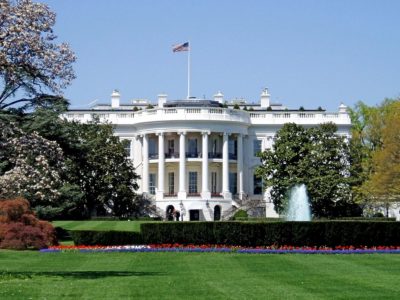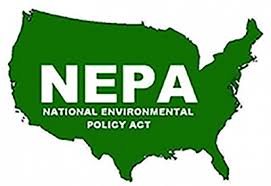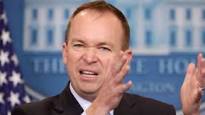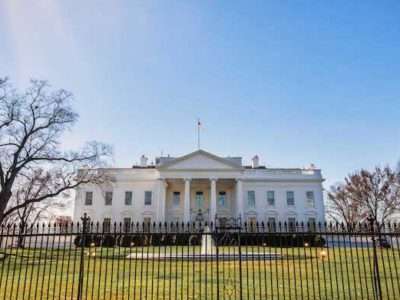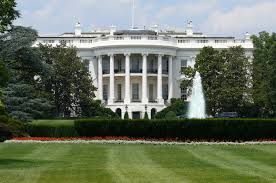OIRA
Rethinking Presidential Administration
Giving the President more control of regulation has been a good thing — up to a point.
Conservatives love to complain about faceless bureaucrats, but blaming bureaucrats for regulations is hopelessly out of date. When Elena Kagan was a professor, she wrote an article called “Presidential Administration.” The article applauded her former boss Bill Clinton for seizing greater control of the regulatory process away from agencies. That trend has accelerated to the …
Continue reading “Rethinking Presidential Administration”
CONTINUE READINGReinventing Cost-Benefit Analysis
If the goal is to give decision makers the tools to make better decision, a single-dimensional metric isn’t the way to go.
One key issue facing Biden on January 20 will be the role of the the White House regulatory czar. The Office of Information and Regulatory Affairs (OIRA) is a tiny White House agency that is virtually unknown to the public. Yet it exercises outsized influence. OIRA is charged with screening all proposed government regulations using a strict …
Continue reading “Reinventing Cost-Benefit Analysis”
CONTINUE READINGEnforcing NEPA’s Forgotten Mandate
The courts have failed to enforce a core requirement of NEPA. That leaves the White House.
The Democrats have adopted an ambitious platform for environmental protection, full of innovative legislative initiatives. Here’s another idea Biden and Harris should consider, making use of the oldest of the modern environmental statutes. The National Environmental Policy Act (NEPA) is best known for requiring environmental impact statements. While they have enforced that requirement, the courts …
Continue reading “Enforcing NEPA’s Forgotten Mandate”
CONTINUE READINGCost-Benefit Analysis and the Next President
If it’s Trump, we’ll see more of the same. But what if a Democrat wins?
Under executive orders dating back to Reagan, regulatory agencies like EPA are supposed to follow cost-benefit analysis in making decisions. Under the Trump Administration, however, cost-benefit analysis has barely even served as window-dressing for its deregulatory actions. It has launched a series of efforts to prevent full counting of regulatory benefits, as well as committing …
Continue reading “Cost-Benefit Analysis and the Next President”
CONTINUE READINGHow I Learned to Stop Worrying and Love OIRA
OIRA may have had its problems. What we have right now is much worse.
If you’re like most environmentalists, you probably don’t have a high opinion of OIRA, the White House office that’s supposed to oversee regulations. (For those who are new to this, OIRA stands for the Office of Information and Regulatory Affairs.) The complaints are legion: that OIRA lacks transparency, that it acts as a back door …
Continue reading “How I Learned to Stop Worrying and Love OIRA”
CONTINUE READINGUnanswered Questions About Cost-Benefit Analysis
We have only fragmentary evidnece about how CBA actually functions in government decision-making.
Considering that people have been debating cost-benefit analysis at least since Reagan mandated its use in 1981, you would think we would have the answers to some basic questions about how it works. Yet we have very fragmentary information, generally based on the perspevtives of people at the agencies or in the White House Office …
Continue reading “Unanswered Questions About Cost-Benefit Analysis”
CONTINUE READINGEconomists vs. Environmentalists: Time for Deténte?
You don’t have to love economics to see it as a possible ally.
Cost-benefit analysis has long been the target of environmentalist ire. But one lesson of the Trump years has been that economic analysis can be a source of support for environmental policy — it is the anti-regulatory forces who have to fudge the numbers to justify their actions. Most energy and environmental economists are aghast at …
Continue reading “Economists vs. Environmentalists: Time for Deténte?”
CONTINUE READINGDowngrading OIRA
The acting regulatory “czar” is the least experienced in history.
Overlooked amidst all the other news, the White House picked a new acting regulatory czar earlier this month. The acting Director of the Office of Information and Regulatory Affairs is Paul Ray, who is very junior and a virtual unknown. It’s difficult to imagine that he’s going to be very effective at telling cabinet officials …
Continue reading “Downgrading OIRA”
CONTINUE READINGRegulatory Review in Anti-Regulatory Times: The Trump Administration
Cost-benefit analysis turns out to make very little difference when the issue is rolling back regulations.
In theory, cost-benefit analysis should be just as relevant when the government is deregulating as when it is imposing new regulations. But things don’t seem to work that way. This is the first of two blog posts analyzing how costs and benefits figured in decisions during the past two years of unified GOP control of …
Continue reading “Regulatory Review in Anti-Regulatory Times: The Trump Administration”
CONTINUE READINGPushing Back Against Presidential Power
It’s time to rethink the amount of power presidents have claimed over regulatory policy.
If there was ever a time to think hard about presidential power, that time is now. That’s a very broad question, but the part most relevant for this blog is the President’s role in controlling government regulation. There is no question that presidents have and will continue to have a huge influence on regulatory policy. …
Continue reading “Pushing Back Against Presidential Power”
CONTINUE READING



